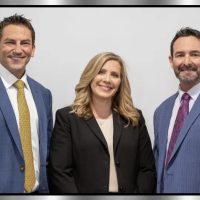Understanding the Federal False Claims Act

You probably have heard of whistleblower lawsuits. But what exactly is “blowing the whistle,” and what does federal law say about the ability of people to report illegal theft or fraud being perpetrated against the US government?
The False Claims Act
The law is called the Federal False Claims Act, and while reporting any kind of illegal activity by an employer is protected, the False Claims Act specifically protects people who report others (who may or may not be employers), who are actually stealing from the government.
Who Can Sue?
But what’s unique about the False Claims Act, is that the person reporting the theft, can sue.
That’s right—even though the wrongdoer is stealing from the government, the person discovering or reporting the theft (the reporter), can actually file the lawsuit. In this way, the reporting party does the enforcement for or on behalf of the government.
This works out for the government, because it means everybody serves as the “eyes and ears” of the government; the law incentivizes everybody to look out for the interests of the government, because anybody reporting and suing for theft stands to gain from winning a lawsuit.
The lawsuit is initially filed by the individual, although the government can then step into the lawsuit as an interested party, though it doesn’t have to do so. The government will determine whether it wants to step in, because the lawsuit was originally filed privately, under seal. This privacy allows the government to investigate the claims, and see if, in fact, it does want to intervene as a part in the lawsuit.
The government may choose not to step in, which still allows you to pursue the case in court.
What Can Be Won?
The rewards can be hefty—under the Act, a successful Plaintiff can recover three times the value of whatever is stolen from the government.
Even if the government does opt to step in and pursue the case, you can still get around 20% of what the government recovers, simply for having brought the information to the government’s attention, and providing the information which is the basis of the lawsuit.
In order to share in the award with the government in this way, the party reporting the information must have had information that is not generally and publicly known—that is, the reporting party must be privy to information that would not otherwise have been discovered by the government in due time.
And if the reporter is an employee of the wrongdoer, the employee is protected from retaliation for reporting.
There is no exhaustive list of what can be reported under the Act, but common things are tax evasion, Medicare or government benefit fraud, embezzlement from the government, or securities fraud.
Do you think you have information about theft from the government – or are you being sued for stealing from the government? You need legal help immediately. Call the West Palm Beach commercial litigation attorneys at Pike & Lustig today.
Sources:
floridabar.org/the-florida-bar-journal/standing-to-sue-under-the-federal-false-claim-act-the-supreme-court-declines-to-take-the-whistle-a/
whistleblowers.org/faq/false-claims-act-qui-tam/
